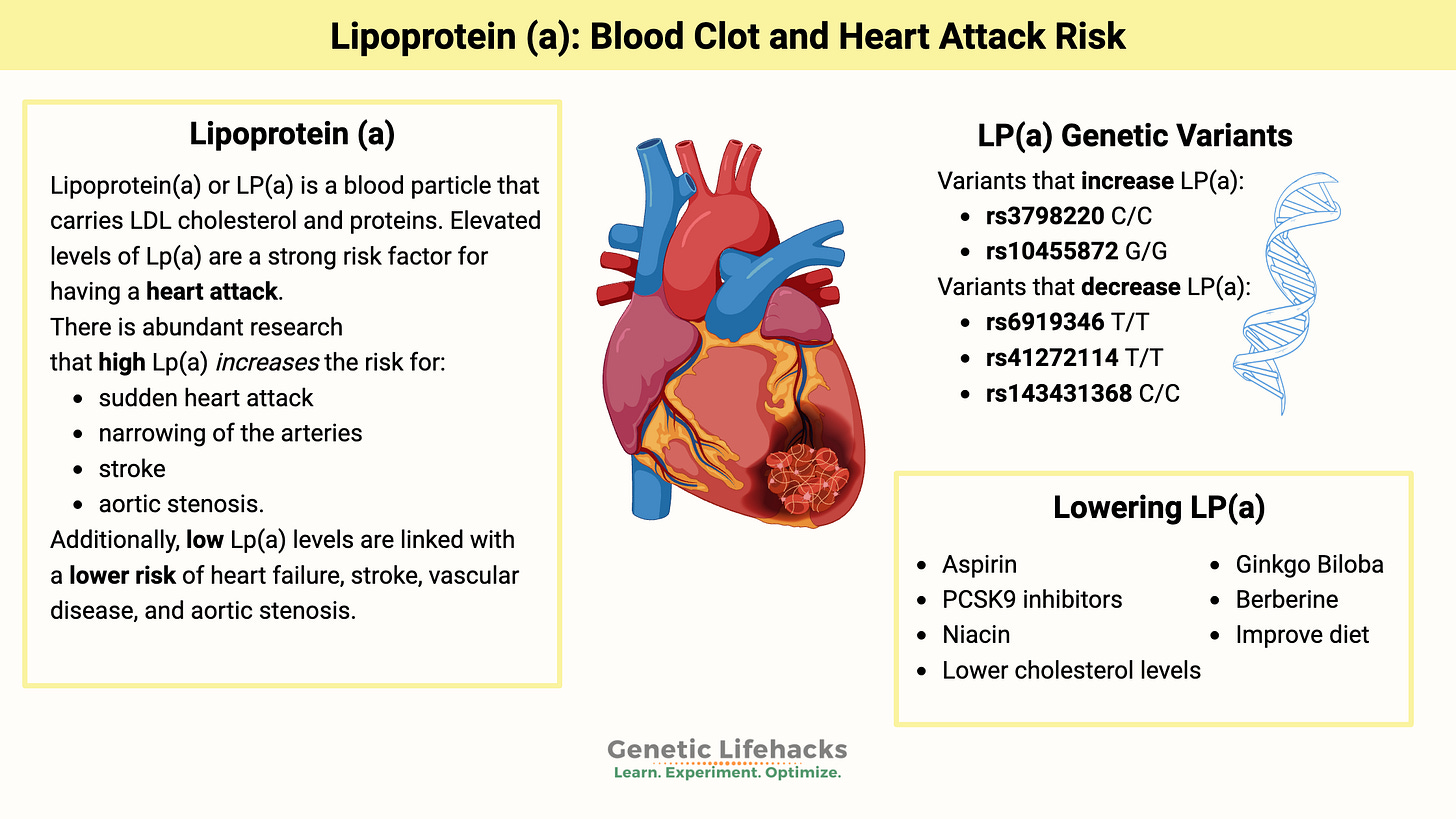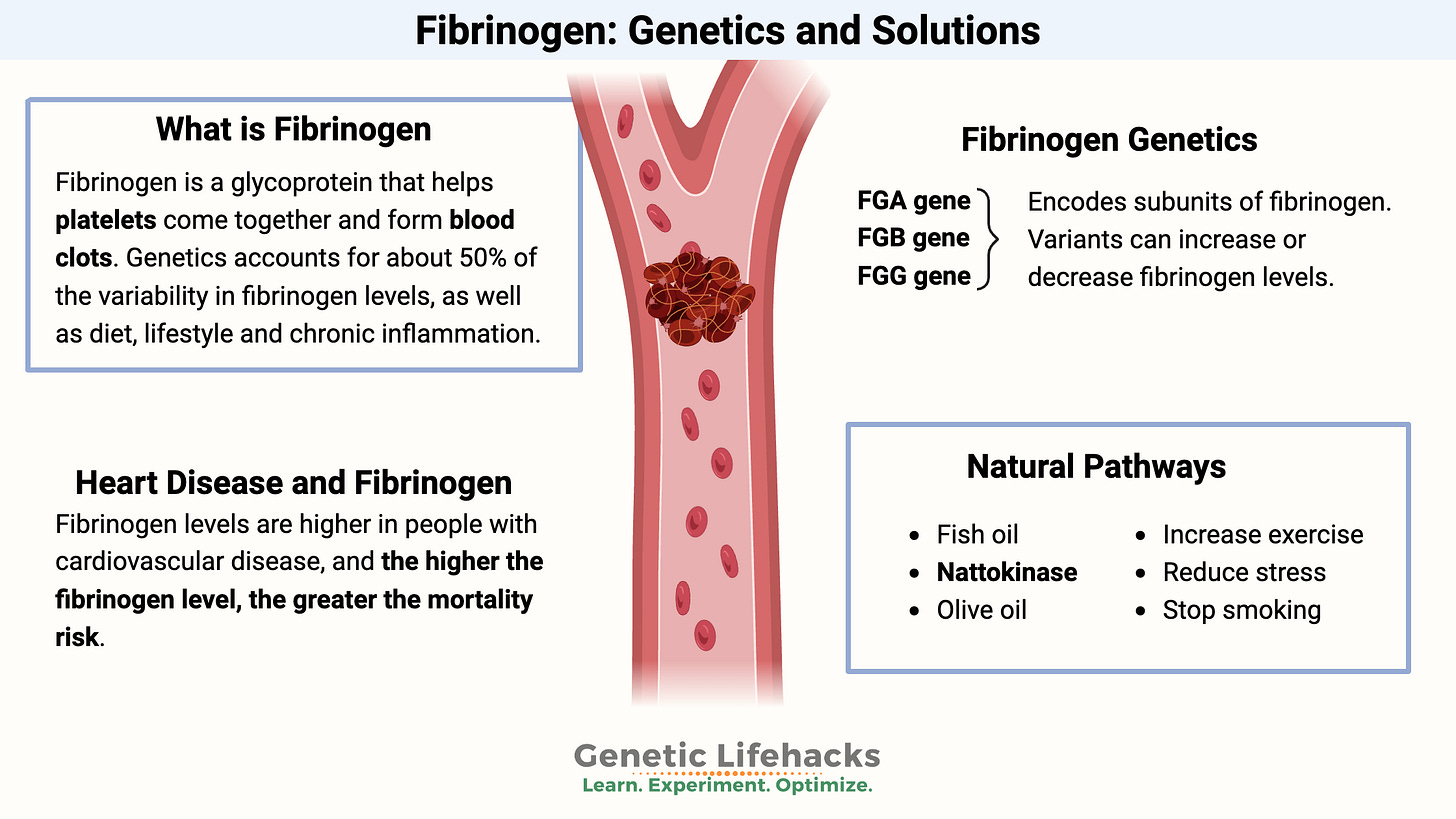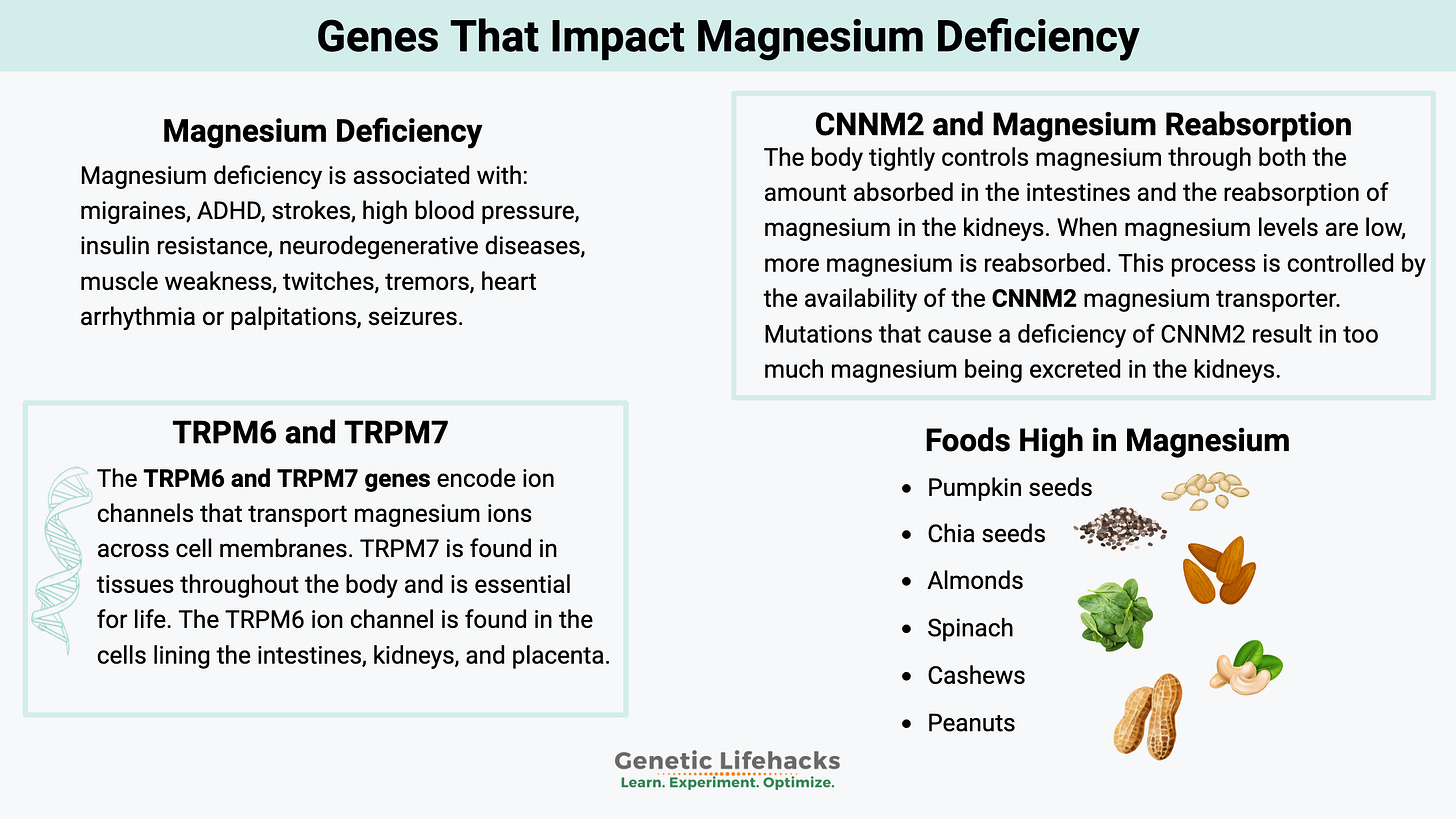February is Heart Health Month, and I've updated several of my heart health articles this week - adding new variations, expanding the Lifehacks sections, and making the Background Science sections clearer and more concise.
Below are two of my updated heart health articles.
Lipoprotein(a) is one that I hope everyone with genetic data will read, check their genes, and act on the information. The Lp(a) article is not behind the member paywall, so please share it with anyone you know who has genetic data.
Fibrinogen is another updated article that I wanted to highlight. Fibrinogen is an essential part of how blood clots, and high fibrinogen is a risk factor for excess clotting.
I also wanted to mention that the article and genotype report on magnesium have been updated and expanded as well. If you're looking for a Heart Health connection for magnesium, check out the article on atrial fibrillation.
Coming next week - a new article on glutamate receptors and transporters.
Grateful for all of you,
~ Debbie
Updated and Expanded!Lipoprotein(a): Genetics and Lp(a) Levels
Key takeaways:
~ Lipoprotein(a) – Lp(a) – is a cholesterol carrier.
~ High Lp(a) levels are strongly linked to an increased risk of heart attacks and aortic stenosis.
~ Genetic variants in the LPA gene drive Lpa(a) levels.
~ Knowing that you are likely to have genetically higher Lp(a) can help you understand when it is important to test it and talk with a doctor.
This article digs into research on lipoprotein (a) and the genetic variants that can cause it to be elevated. I’ll explain how to check your genetic data (e.g., 23andMe or AncestryDNA) to see if you carry the variants and then the next steps to take with getting blood tests done.
Elevated Fibrinogen: Risk factor for blood clots
Key takeaways:
~ Fibrinogen is essential for making blood clots, but high levels of fibrinogen are linked to several health conditions.
~ Fibrinogen levels rise during systemic inflammation, such as during illness, chronic diseases, or mental stress.
~ Genetics account for about 50% of the variability in fibrinogen levels, with specific genetic variants linked to increased clotting risk.
~ Elevated fibrinogen levels are associated with a higher risk of cardiovascular disease.
Magnesium Deficiency? Genes that Impact Magnesium Levels
Key takeaways:
~ Magnesium is an essential mineral needed for hundreds of reactions in the body.
~ The body controls magnesium through uptake in the intestines, storage in the bones, and reabsorption or excretion in the kidneys.
~ Some people genetically are more likely to be deficient than others, based on polymorphisms that impact magnesium absorption.
~ Understanding your genes can help you decide whether you may need more magnesium in your diet or via supplements.
New on Longevity Lifehacks
Longevity for the 99%:
Exploring the less expensive (and well-researched) options for improving healthy longevity.
What I've been reading:
1.) Omega-3 supplements slow biological ageing
A new study in Nature Aging shows that 1g/day of DHA/EPA from algae improved biological age parameters by 3-4 months. Added benefits were seen from adding 2,000 IU of vitamin D/day along with exercising 3 times per week.
Related Genetic Lifehacks article: Specialized Pro-resolving Mediators (SPMs): The Resolution of Inflammation
2) Cerebral Blood Flow in Orthostatic Intolerance
This new review article in the Journal of the American Heart Association explains that in ME/CFS and long Covid heart rate and blood pressure are frequently normal even when cerebral blood flow decreases.








Thank you! Great info. Are you familiar with Ruth Kris work? She links that lp(a) is definitely genetic but also can be increased in chronic health states and large biofilm producers. She suggest niacin and Lumbrokinase. She is in her 70’s and has reversed her ct calcium score. she works with ic and chronic uti patients/docs as that is typically a biofilm issue. Also, I would suspect cholesterol reverse transport not working correctly due to not meeting genetic choline requirements????